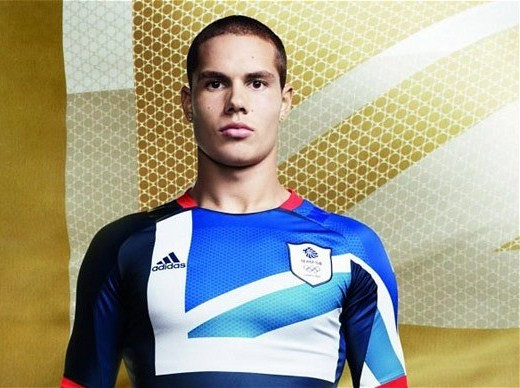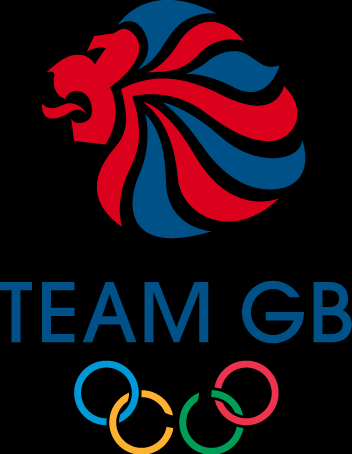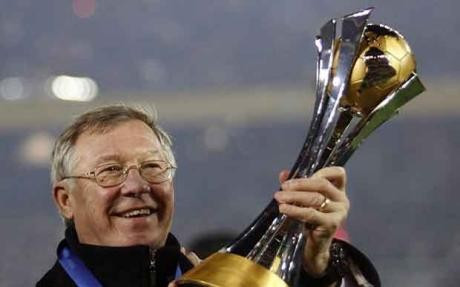Team GB - The Future of British Football? [BLOG]
Home nations should put their differences aside on the football field, and play as the United Kingdom.

"Three lions on the shirt, Jules Rimet still gleaming. 46 years of hurt, never stopped me dreaming." Those are the revised lyrics to Frank Skinner and David Baddiel's melancholic ode to the futile hopes we carry for the men's national side. Football might have originated in England, but success has been few and far between. 1966 has become just a sequence of numbers as fans have had to suffer countless disappointing exits at the international stage, including last month's inevitable penalty shoot out defeat to Italy.
But there is hope, and who would have thought, it comes in the form of the Olympic Games. Ineligible to normally compete due to the home nations playing separately, football at the Olympics has been largely ignored in the UK, until London won the right to host the games and Olympic officials decided to create a Team GB just for the event.
The first match was a nervy affair, as the new look side succumbed to a 2-0 defeat to Brazil within the ghostly atmosphere of the Riverside stadium. When Team GB kicks off their Olympic campaign against Senegal at Old Trafford, there will be as many people bemused at the sporting concotion as supportive of the side.
There's no doubt that the players are eager to participate in the tournament. Captain Ryan Giggs has publicly stated he would like to see Team GB exist in some form after the Olympics and that poses an important question. Should Team GB become a permanent side, and not just for the Olympics? There are certainly many compelling reasons to consider it.

The 'Best' players
The British squad for the Olympics has hardly set the world on fire, but the additions of Welshmen such as Joe Allen and Aaron Ramsey are certainly a plus, and their creativity and flair in midfield could be the difference between the side winning a medal or not. That's not to discount the promise of English youngsters like Daniel Sturridge, Tom Cleverley and Danny Rose, only that playing together makes the team a lot stronger than if they played for their respected national sides.
The main reason only one home nation has ever won an international trophy is because on their own the squads have not been good enough. Think of all these great players. Bobby Morre, Kenny Dalglish, Mark Hughes, Denis Law, Pat Jennings, Bobby Charlton, John Toshack, Mal Donaghy. They could all have graced Team GB, a few of them in the same team!
Playing as one national side not only improves the squad, it gives great players the chance to make their mark on the international stage. One of the delights of seeing a Team GB side is that Ryan Giggs, arguably the Premier League's greatest player, will finally get to compete in a major international tournament. But it's a crying shame that he never got a chance to play in a World Cup. The tragedy of Giggs is maginified when the same opportunity was denied to the greatest player from the British Isles, George Best.
Geoff Hurst might have managed a hat trick in the 1966 world cup final, but Best probably would have bagged even more goals had he been in that great team. Unlike Pele, Maradona and Cruyff, there is sadly no tournament remembered for Best's brilliance, and there are many more like him that never got a chance to showcase their greatness to the world. Unless Wales pull off a minor miracle down the road, is it fair that the likes of Gareth Bale will never get to perform on the world's biggest stage?

Managerial might
If the players argument doesn't convince you then what about the managers? Roy Hodgson was selected for the England hotseat based on one very important credential, he was English. The decision to plump for a fellow countryman came after Fabio Capello's disasterous tenure where communication breakdowns were reportedly rife, perhaps because he didn't know the language. For those adamant against a foreigner managing the nation team, then consider that selecting someone from elsewhere across the British Isles would certainly open up the talent pool. Scots such as David Moyes and Paul Lambert, Welshman Tony Pulis and Mark Hughes, and Northern Irishman Brendan Rodgers and Martin O'Neill all coach in the top flight, revealing the staggering amount of managers who could take over Team GB.
And that's not even including the greatest manager of all time, Sir Alex Ferguson, who could add a World Cup to the 12 Premier League titles and 2 Champions Leagues he has won whilst at the helm of Manchester United. No longer would the FA have to bounce back and forth between unrelatable foreigners and unimpressive Englishman when it comes to managing the national side, instead being spoiled for choice picking the best British candidate for the job.

A nation united
Perhaps the major reason is the unity playing as one nation could bring to Great Britain and Northern Ireland. Devolution and Alex Salmond's referendum plans have pushed the British Isles to breaking point, meaning that we could soon be left with a not so united kingdom. This might be a stretch, but if the most popular sport in the UK was represented by a British team, it could bring the whole nation closer together.
If that image is too hard to comprehend, think of it like The Avengers (or whatever it was called in UK cinemas). A group of isolated individuals resolve their differences and team up to defeat an unstoppable foe (read Spain). We have the individual nations, and the ability to unite them as one. The spirit shown for the Olympics could be recreated every time when the national side takes to the field. The Team GB rebranding has done an impressive job of creating a unified sporting outfit that peope across the UK can cheer and support, perhaps it is time do the same with our football sides.
Yes there are the obvious downsides to this coalition. The celtic countries might feel that similarly to the British government, their issues are not addressed as they have to cave to the demands of a dominant England. There's the history as well. If the nations have always played apart, it would ruin 140 years of tradition that are part of our sporting culture. And if Team GB was formed, then surely you would have to likewise dipsense with the English Premier League and open it up to teams from Scotland and elsewhere (probably an attractive option for Rangers right now).
So what do you say? Would Team GB be an affront to individual national identity across the home nations, or a great opportunity to unite as one country and finally bring the World Cup back home? Regardless I hope this Olympics is not the last we see of a British national football team.
© Copyright IBTimes 2025. All rights reserved.




















